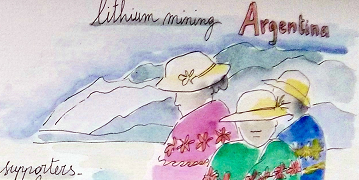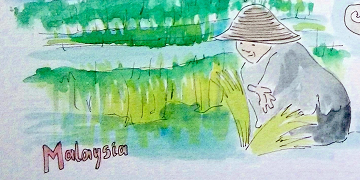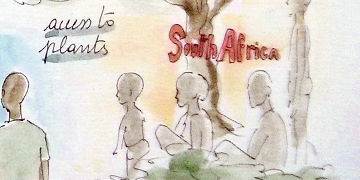The BeneLex project comprises an inter-disciplinary, empirical study of ‘community protocols’ as tools for articulating and implementing fair and equitable benefit-sharing at the intersection of international, transnational, national and indigenous communities’ customary law. The study integrates empirical legal research and political sociology. It is being carried out, inter alia, through research missions in Namibia, Malaysia, South Africa, Argentina and in the Greek island of Ikaria. Each case study focuses on a different sector, namely: wildlife management, agriculture, traditional medicine, mining and pastoralism.

Strathclyde Centre for Environmental Law and GovernanceCountry studies

Argentina
Argentina is party to the ILO Convention No. 169 which recognised that Indigenous and Tribal Peoples 'shall, whenever possible, participate in the benefits of the exploration' of mineral and other resources pertaining to their lands. Since 1994, the Constitution of Argentina has recognised the right of indigenous peoples to participate in the management of the natural resources traditionally held by them. A number of indigenous communities are developing community protocols as part of a litigation strategy to ensure good-faith and informed consultations on the use of indigenous territories, including for lithium mining purposes. The BENELEX team hopes to understand, together with concerned communities and other stakeholders, the role of fair and equitable benefit-sharing in the context of environmental impact assessments and the free, prior informed consent of indigenous peoples with regards to proposed development projects on their lands, resources and territories.
Greece
The Greek island of Ikaria has a long history of community management of natural resources, including water sources and forests, and a wealth of intermediary systems of ownership, which combine private and collective rights and uses. Such customary structures are intertwined with a wealth of traditional knowledge, a tradition of political activism, and a unique culture based on self-organization, solidarity and community ties, expressed in both everyday activities and in regular celebrations. In the contemporary historical disjuncture, a series of challenges have arisen, from both legislative reforms and proposed developments affecting community access to natural resources and customary property regimes. Consultations and public dialogue initiated include the consideration of a community protocol. The BeneLex team hopes to understand, together with concerned local communities and other stakeholders, whether and to what extent the concept of benefit-sharing may help address tensions regarding natural resource use (in particular, pastoralism), and to test the potential of the introduction of community protocols into the EU.
Malaysia
Malaysia is a megadiverse country, and community protocols are being negotiated in different parts of the country with different foci. According to the 10th Malaysia Plan 2011-2015, the government's economic development framework is based on a foundation of growth with equity, with a renewed focus on championing the interests of communities and social justice. In Sarawak, the BeneLex team hopes to understand, together with concerned communities and other stakeholders, approaches and challenges to fair and equitable benefit-sharing in relation to the sustainable management of lands in the context of agricultural development, with a specific emphasis on traditionally cultivated plant varieties and traditional farming practices, and the governance of benefit-sharing agreements between the government, the private sector and indigenous communities.
Namibia
Namibia has gained an international reputation for its policies on community-based natural resource management and has also developed a national policy on protected areas' neighbours and resident communities to promote communities' access to socio-economic benefits deriving from protected areas and communities' involvement in the conservation, planning and development of protected areas. Within this framework, indigenous communities are developing community protocols to outline their vision about, and to seek to address the challenges they face in, contributing to sustainable wildlife management. The BeneLex team hopes to understand, together with concerned communities and other stakeholders, the opportunities, risks and limitations related to fair and equitable benefit-sharing from community-based wildlife management within national parks, with a focus on security of tenure, protection of traditional knowledge, participation in relevant decision-making, and livelihoods.



.jpg)